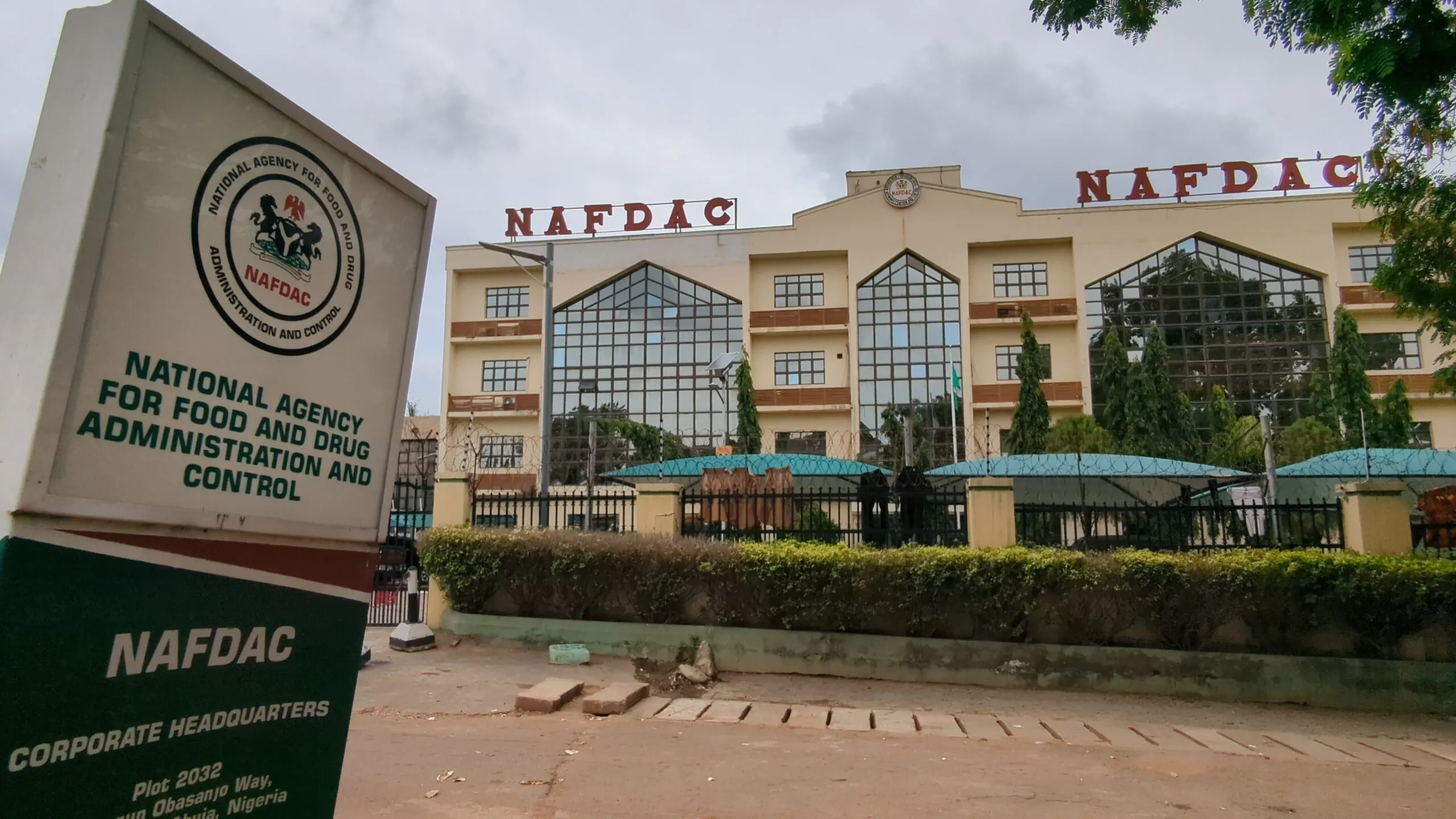The National Agency for Food and Drug Administration and Control (NAFDAC) has busted an extensive illicit trade network dealing in counterfeit chemicals, expired food flavourings, unapproved fertilisers, and repackaged pharmaceutical ingredients within the Alapere area of Ketu, Lagos.
In a statement on Monday, the agency revealed that its enforcement team arrested multiple suspects linked to the syndicate and sealed off three warehouses stacked with hazardous products.
Speaking to reporters after the operation, Martins Iluyomade, NAFDAC’s Director of Investigation and Enforcement, explained that the raid was carried out following actionable intelligence about a sophisticated criminal ring involved in the large-scale adulteration of food and chemical supplies.
Iluyomade emphasised that the crackdown formed part of the agency’s mission to safeguard public health, warning that individuals masquerading as legitimate traders while distributing harmful substances pose a grave threat to Nigerians.
Read also: Lift Sachet Alcohol Ban Immediately, Reps Tells NAFDAC
Iluyomade disclosed that the suspects were involved in selling and rebranding expired chemicals, some of which had been dangerously diverted for use in food processing and pharmaceutical manufacturing.
He further revealed that the enforcement team uncovered a cache of restricted materials, including controlled fertilisers that ordinarily require security clearance from the Office of the National Security Adviser, all of which were being stored and distributed without official approval.
Nigeria’s counterfeit chemical trade remains a shadow industry feeding on weak enforcement and porous supply chains. Experts warn that such clandestine operations not only compromise consumer health but also erode trust in the country’s food and pharmaceutical systems, worsening an already fragile public health landscape.
Similar seizures in recent years have exposed networks that extend beyond Lagos into industrial hubs in the North and South-East, often tied to syndicates importing banned raw materials from Asia. Analysts argue that unless stricter border controls, transparent supply systems, and court-backed prosecutions are prioritised, such criminal enterprises will continue thriving undeterred across Nigeria.

